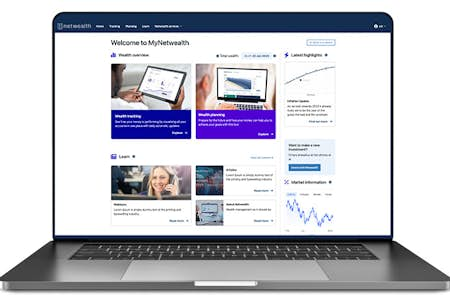Did you know that you could be paying £40 a month in direct debits for services you don't even use? The average person wastes £30,000 on direct debits they have forgotten to cancel during their lives.
Creating a personal budget allows you to take control of your money and save for retirement more effectively. Budgeting doesn't need to be complicated. The simplest definition of a personal budget is a plan that uses your income to pay for expenses, debt repayments, and savings.
You are already operating within a budget by receiving an income and settling expenses. A budget plan simply allows you to see how your money is allocated and take control where necessary.
There are many budget templates and methods to explore if you're looking to manage your financial situation. And just getting started will put you ahead of the nearly 40% of Brits who don't feel confident managing their own finances. The pandemic has only exacerbated this issue.
As you approach retirement, effective money management becomes even more crucial. You will need to think about your financial goals and the monthly income you need for a comfortable retirement. In addition, you may need to adjust your spending habits to ensure you will retire with the right amount of money.
Your budget plan: the prep work
You will need to do some prep work before working out a realistic budget for your financial situation. While working out rough estimates of monthly expenses and income is quick and easy, you will gain the most accurate idea of your personal finances by gathering relevant documentation and taking your time. As a first step, dig out as much paperwork as you can, including:
- Credit card statements
- Bank statements
- Payslips
- Mortgage payment statements
- Receipts (especially for cash payments)
Creating a monthly overview of your income and expenses is vital in developing a realistic budget. Gathering as much paperwork as you can ensure you won't forget critical bills, a source of income, or other expenses that should be in your budget plan.
What if I'm self-employed?
If you are self-employed, your income may vary from month to month. Therefore, you will have to decide on a method to account for this variation.
If you are on the risk-averse side, you could benefit from identifying your lowest-earning month from the last financial year and using that as your income figure. Then, fitting your budget around that figure is likely to result in extra money in months when you outearn your lowest figure, allowing you to build up an emergency fund for unexpected expenses.
Once you have all your paperwork and figures in place, you can determine how much you earn and what monthly expenses you have in place. Monthly expenses could include:
- Car insurance and fuel
- Food shops
- Mortgage or rent payments
- Utility bills
- Council tax
- Subscriptions
Once you've got an idea of your monthly expenses and take-home pay, you will be able to work out whether you have money left in your current budget or need to consider adjusting your living expenses to fit within your income.
We asked Michael from Foxy Monkey for his top tips for budgeting when you're self-employed. Michael told us: "Budgeting is harder for the self-employed. Your income may vary and so will your taxes. When budgeting, do not forget to set aside some money for your tax obligations. Your accountant or online accounting software will allow you to know your take-home income at any point in time. The last thing you want is to be surprised by a tax bill that has not been accounted for!"
Your spreadsheet
If you want to track your income monthly, you could create a spreadsheet using Excel or Google Sheets.
Your spreadsheet will generally consist of two sections - an income section and an expenses section. You will then typically have several sub-sections under your expenses. These depend on your circumstances and can be as detailed as you like. You could have separate sub-sections for expenses like:
- Home expenses
- Transporation
- Entertainment
- Savings
- Debt repayments
Over time, you can monitor these sections to see whether you need to make any tweaks.
Some people opt to include projected figures and actual figures. The projected figures are what you expect to spend based on previous data - this is where your financial paperwork comes in handy. The actual figures are what you spend.
Excel and Google Sheets offer several free personal budget spreadsheet templates like this one that you can use as a starting point and tweak to fit your personal circumstances.
Keeping budgeting simple
If you are happy with your monthly income and monthly expenses, your budget plan could just be a simple spreadsheet tracking your cash flow. You could make tweaks here and there to your expenditure as and when you feel this is necessary. At its simplest, that's what a budget plan is - a way to track your finances.
However, if looking at your financial situation has made you realise you rely on your overdraft to keep you afloat, you may be wondering how to adjust your budget.
Conversely, if you find you have extra money at the end of the month, you may wish to set more intentional financial goals, especially if you are retired or preparing for retirement in a few years.
These scenarios may require some additional work on your part.
50/30/20
If your income is sufficient to meet your essential expenses and have money left, you could think about using the 50/30/20 budget rule. The rule works as follows:
- 50% of your income after tax is spent on necessities like food and mortgage repayments
- 30% of your income after tax is spent on wants, like Netflix subscriptions and takeaways
- 20% of your income is spent on savings or debt repayments
The rule provides a way to compartmentalise your spending and put away a hefty chunk towards savings and debt repayments. This could provide peace of mind that you will be debt-free in time for retirement, depending on your circumstances.
If you are approaching retirement, these figures may look different. For instance, you could opt to save a little more than 20% to allow you more peace of mind when you retire.
Tips for budgeting on a limited income
Not everyone can survive on 50% of their income. If you struggle to make ends meet on your income, you are not alone. More than 11 million people in the UK have less than £100 in savings. So how do you reconcile a limited income with hefty monthly expenses? Here are some ideas to help you balance your budget:
- Avoid unnecessary expenses - review your budget spreadsheet for any unnecessary subscriptions you could do without and cancel them.
- Adjust spending - while turning off your utilities and going without food isn't an option, you could make savings by making sure your lights are turned off or switching to own-brand foods and cooking from scratch.
- Seek out alternative sources of income - if your expenses are costing you more than your income, it may be time to consider overtime work or a second job. Or, if you own your home, you could make money from it using our guide.
If you are struggling to make ends meet, you may find that you are spending 100% of your income and not saving anything. This may be the most realistic approach for you at this stage. You can always look for ways to save once you have balanced your budget.
Free budgeting apps and tools
You could use a simple Excel budget spreadsheet to keep track of your monthly budget. But there are also several free budgeting apps and digital tools you could benefit from when you start your financial planning journey. Some free tools include:
- MoneyHelper Budget Planner - This tool allows you to fill in your income and outgoings for a breakdown of your finances. The tool also offers personalised advice to help you plan your finances.
- Citizens Advice Budgeting - This is a similar free tool where you can get a more comprehensive idea of your financial situation.
- Emma - This free app links to your bank accounts to analyse your spending. You can see all your accounts in one place and track and cancel subscriptions you don't use anymore. There is a paid version, but Which suggests only purchasing it if you think you will use the features. Snoop and Chip are similar.
Discover whether personal finance software might be worth it in your circumstances.
Budget planning in later life
Budget planning will help you take control of your finances and set financial goals. A budget can be a simple spreadsheet that tracks your income and expenses. But you could also opt for a budget tool that provides a little more insight.
If you are looking to save for retirement, you could make use of the 50-30-20 budgeting rule, where you save up to 20% of your take-home income. However, if you struggle to make ends meet, you may need to balance your budget first. You could do this by examining your monthly budget and cutting out unnecessary subscriptions or using your home to make you extra money.
Jen Kempson from Mamafurfur told us: “It’s important that your budget or spending plans per month reflect both the life you are living right now and the life you want to create in future. This means that if you have important goals such as paying off debt, giving to others or building up retirement and investments for the future - you need to be actively placing even small amounts every month away from your monthly income. It makes your budget a tool to use to create the life you wish, rather than simply hoping things change for you without any effort. I would also concentrate on habits that will serve you with a better quality of lifestyle in future too - for me that includes saving well, investing well in my future (this can even be food choices/shopping choices, starting new income streams, taking out that gym membership) and giving as part of a regular monthly budget plan.”
Whatever your situation, a comprehensive budget allows you to plan for the future and make adjustments as necessary.








